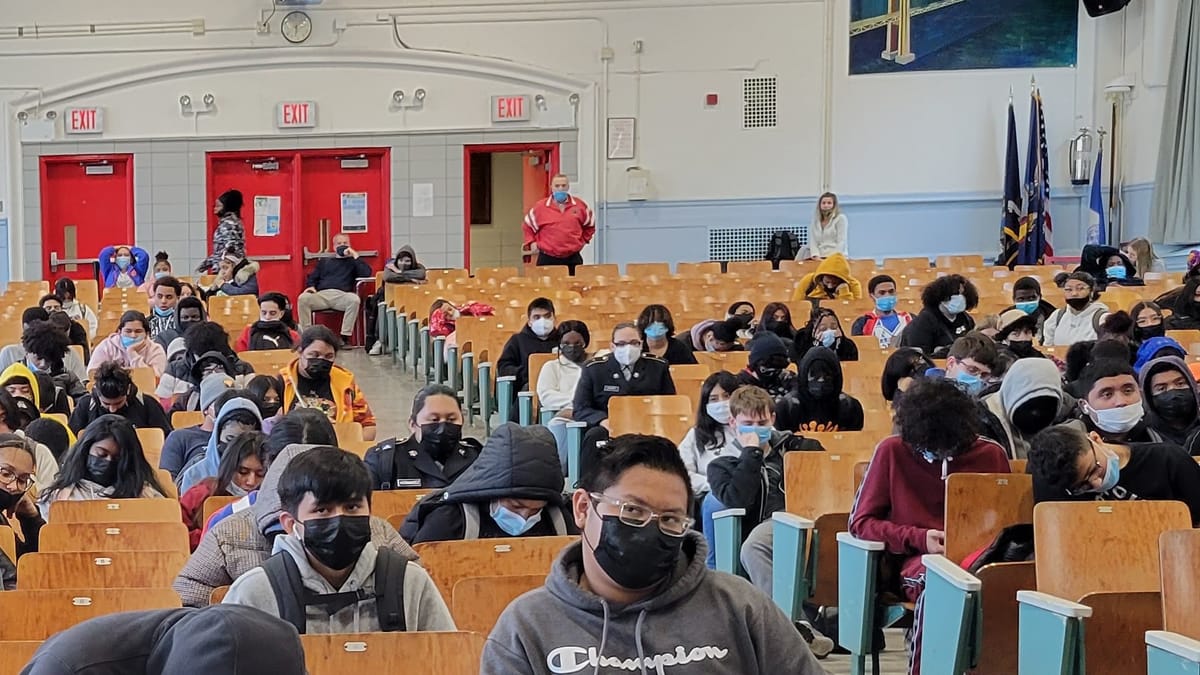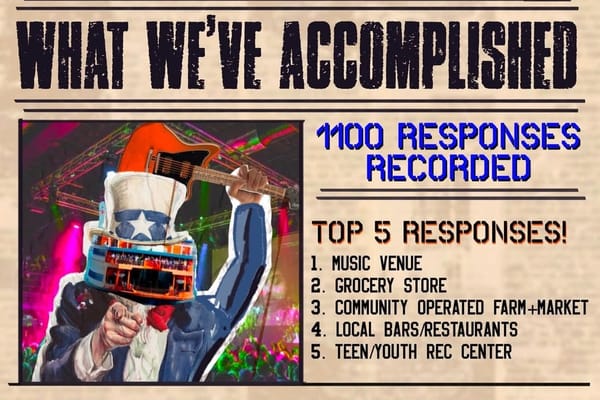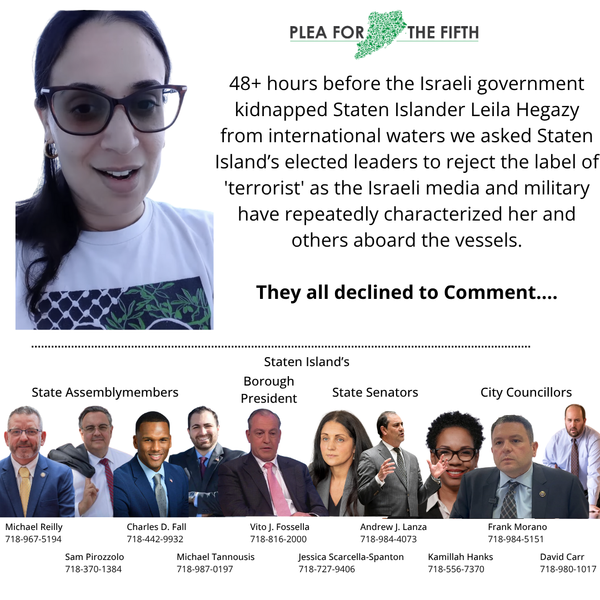New Rules Prohibited Staten Island High School Graduates' Free Expression
Afraid of how seniors would express themselves at graduation, administrators of Staten Island's public high schools chose preemptive suppression.

In June of 2024, Curtis High School senior Sabra Aiyash approached her graduation stage carrying more than just four years of academic achievement, she carried her identity as well. Yet moments before crossing the podium, administrators confiscated her stole, deeming the Arabic script of her name "inappropriate." During this year's graduations, students didn't get the chance to make that walk with their cultural symbols intact. Multiple high schools across Staten Island implemented sweeping bans on custom graduation stoles, flags, and cultural displays, a move seen as a thinly veiled crackdown on pro-Palestinian expression disguised as "neutrality."
This policy shift arrives amid a national reckoning over student protests in support of Palestine, from Columbia University's encampments to CUNY's heated debates. While university administrators grapple with balancing free speech and campus safety, Staten Island's public high schools appear to have chosen preemptive suppression. The new rules, which prohibit all non-distributed graduation accessories, ostensibly aim to prevent disruptions.
The Ban on Stoles: What’s Happening & Why?
Across District 31, senior assemblies have delivered a clear message: Only school-issued regalia will be permitted at graduation ceremonies. No stoles celebrating cultural heritage, no flags, no symbols of activism. Administrators frame the policy as a neutral measure to maintain decorum, but students see a glaring contradiction. The NYC Department of Education declined to comment on whether they issued a rule around graduation ceremony regalia.
The timing of these restrictions raises red flags. The bans follow a school year marked by student-led protests against Israel’s military campaign in Gaza, with walkouts and demonstrations spreading from college campuses to K-12 schools, including Susan Wagner High School. In this climate, symbols like keffiyehs and Palestinian flags have become flashpoints and students note a double standard in enforcement.
“I’ve seen some students get away with bringing in other heritage symbols such as the Mexican flag, while others who just have Arabic writing are targeted,” said a McKee High School student echoing the sentiment, noting a double standard: "It’s completely unfair. Kids have worked hard for four years and want to show pride in their heritage."
“I do believe this ban disproportionately targets certain students, particularly those of Arabic identity,” said one Curtis High School staff member, “It was common for students to represent their heritage and identity without facing significant pushback. However, following recent events in Palestine, there’s been a noticeable shift.”
On Staten Island, a politically conservative enclave with stark divides over Israel-Palestine, the tension is especially felt. Elected officials have historically aligned with pro-Israel policies, and the school district’s crackdown mirrors broader national trends conflating Palestinian solidarity with antisemitism.
Sending a Message of Sterility
For many students, these bans represent not only a restriction on attire, but signify the suppression of quiet resistance. Graduation stoles have long served as vehicles for cultural pride and political statements
"Cultural stoles at graduation are not only used to show patriotism but also as a method of silent protest," One Curtis student added. "By taking this away, it sends a message of sterility and silence."
The policy’s impact extends beyond Palestine-related expression. By broadly prohibiting all non-approved symbols, the district avoids explicitly targeting any one group while effectively silencing dissent. This approach mirrors tactics seen in other conservative-leaning areas, where vague "neutrality" policies are deployed to curb progressive activism.
Despite this, inconsistencies in enforcement undermine the district’s claims of impartiality.
A New Dorp High School student noted: “Even though [stoles were] banned at graduation, at the most recent graduation I attended, someone had a stole showing Mexican pride.”
Such selective tolerance suggests the real concern isn’t disruption, it’s the content of the message.
The Myth of Neutrality
When pressed for comment, Staten Island school administrators declined to explain why stoles are now deemed disruptive. The lack of transparency has only supported suspicions that the ban is less about decorum and more about controlling dissent.
New York isn’t alone. Across the U.S., schools and legislatures are clamping down on pro-Palestine speech under the guise of "neutrality.” Texas lawmakers recently passed a law requiring public universities to discipline students for "antisemitic speech," which has been used to suppress Palestine solidarity protests.
"This isn’t just about Staten Island, it's part of a bigger effort to silence dissent," said another Curtis senior, "They’re scared of us speaking up, whether it’s about Palestine or our own identities."
The Bigger Picture
Some students acknowledge the administration’s stated concerns about avoiding conflict but argue that blanket censorship is a misguided solution.
"I see both sides," admitted the New Dorp student. "Of course, we’d love to respect all perspectives, but the world doesn’t work that way. Still, students shouldn’t fear being proud of their culture."
Others challenge the premise that cultural representation is inherently disruptive.
“I believe that, for many administrators, the decision to ban stoles is less about maintaining neutrality and more about avoiding controversy or public criticism. It seems like an effort to shield the school and its leadership from backlash, rather than genuinely fostering an inclusive environment,” says the Curtis staff member.
A Milestone Muted
Graduation is a rare moment where students can visibly celebrate their identities alongside their achievements. But for the Class of 2025, the stage was stripped of those very symbols that define them.
The implications stretch far beyond one issue. If a name in Arabic or a piece of cloth is "too political," what does that mean for free speech within our schools?
“I want school officials to recognize in light of the ongoing violence and injustice in Palestine, it’s more important than ever for Palestinian and all students form marginalized and oppressed communities to have the right to represent their identities,” said a DOE staff member.
As tensions over free speech and political expression continue to simmer in schools nationwide, one thing is clear: For students who’ve spent the past four years working to be seen, the message from administrators is painfully loud, even if their stoles are now silent.




